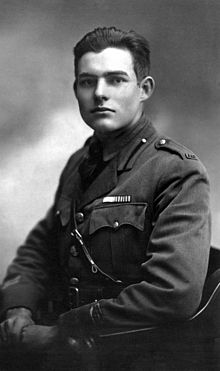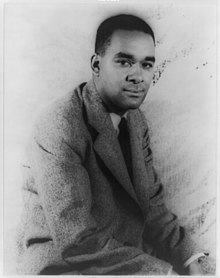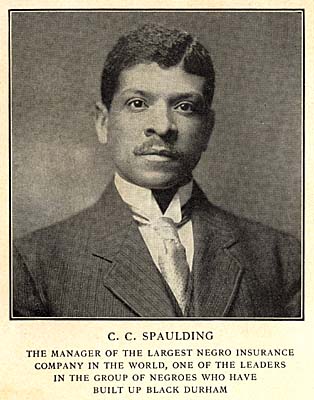 Final Post
Final Post
Recapping My Blog and Grade
It has been a very Long and Arduous semester. However I can not help but to feel pleased with all that I have learned. The obstacles that I conquered this semester were immeasurable but all the dedication has paid off.
Of all my work this semester in my first 200 leveled English class I would have to say that I enjoyed almost everything. When it comes to my very first Blog I am astounded when I can look back and cruise through a list of work that even requires me to visit "Older Work."
I think my strongest work in the blog this semester were...
Washington And Du Bois
- A response on the the two authors works Up From Slavery by Taliaferro and The Souls of Black Folk by William. I was connected to the text and believed in the values I was speaking of when it came to the views on rising up against racial inequality.
Villanelle
- This has been my first assigned poetry in years. I love writing poetry. Thus the writing was long awaited and I put a lot of time into the Villanelle. I also think I did very well for just learning how to write a Villanelle. Its a good read.
Close Reading a Poem
- This post followed the assignment the best out of all my posts. I met all the requirements and even had a chance to fix some critiques. I also loved the poem Apple Picking by Robert Frost. It showed in the depth of the post.These three posts are my strongest blogs for a number of reasons. Earlier in the semester we were still becoming familiar with the scope racial inequality portrayed through our readings.When we were assigned Up from Slavery by Booker T and Souls of Black Folk by Du Bois I was becoming aware for the first time of the stories that are not taught in our history classes. I was tired of reading on history. Instead what we got were first hand accounts of the people who were rising up against racial inequality, not laws and regulations being passed by the government. This was good for me because I could appreciate the text and not think about it just like an assignment. Because I cared for once about what I was reading the texts became enlightening. I was able to write in a way that truly expressed how I felt about racial inequality after reading both stories. I was able to understand that even though Du Bois was more humanistic the candid voice of Washington was what it took to be heard in those times. All this showed in my writing making it a good blog post.When I read the poem Apple Picking by Robert Frost I immediately fell in love with it. I love poetry and this poem reminded me of when I was a kid growing up in Idaho City. My grandmother Sue used to work at a Bed and Breakfast maintaining everything from the kitchen to the garden. Every year we would make our rounds picking all the different apples for pies and cupcakes and applesauce. At some point and time during the production the place would look just like the scene painted in Apple Picking. Because I was so attached it seemed no task at all digging deep into the poem and finding all the knowledge required for the Close reading. I was able to meet all the requirements of the assignment and that made for a spot on blog post. It was enjoyable.The Villanelle was also one of my strongest blog posts. Because it was the first time I have been assigned writing poetry in years I was able to put lots of though and love into the poem making a good read that was also great in following the proper structure of the style Villanelle. The only critique I had for this poem was maybe that it could use some work on the stressed and un-stressed syllables.My views on literature have changed considerably since the beginning of this class. Before this class I had not given much thought about literature since my last English class; which was still learning English not surveying literature. It changed my view considerably in the sense that literature is not just something that people created for fun or for education, rather it is a product of the emotions and circumstances of the people writing in their specific time. All the different literary movements we studied were not produced for education, rather they were direct essences of the stressful things that come from developing countries so to speak. I would say that now I can appreciate literature as more than just education, because I have learned how the some styles have been created.It's been a wild semester taking five classes rather than four. The extra responsibility weighed on my grades and I will admit that I have struggled to stay on top of things. I am an A and B student but this semester there are only going to be B's and C's on my report card. I cant complain however. This is my first year of school completely independent with no family to help and encourage me along because my grandmother passed away last year. I have managed to pay for school and not drop any classes like last semester or failing. This is a huge achievement. Since I have no car I have also managed to stay consistent with my attendance even though I ride my bike miles a day just for class. I also have managed to take care of my dog this semester after she got badly injured in a dog fight with a pit bull. All these things are amazing achievements.In this class I feel, as always, that I could have done better. The only reason that I have a C in this class is because despite my best efforts to stay on top of all my classes, I inevitably forget assignment due dates and in this class, my blog posts. Missing these blog posts have made a huge detrimental impact on my grade, which is sad because I have learned and done well in the class. I managed to make it to class almost every day on my bike through the cold rainy or snowy, or once a blue moon sunny mornings. I paid attention in class, and participated in all the mini discussions we would ofter break into. I participated in the weekly class lecture to the best of my ability by interacting with the class every time I had a chance to voice my opinion or add thought towards something we were discussing instead or remaining quiet.I feel I am a strong student when it comes to participation. When participating in the class you have to know your stuff to add any sufficient thought. I took my readings seriously so that I could add good information for these interactions. I feel I am a weak student when it comes to managing all the time it takes to get all of the reading and computer work done for the class. Because I have the extra class I cant be to hard on myself about what has happened this semester.I deserve a solid B in this class. It is my first English class were, in my own opinion, you apply what you have learned. I did a great job using all of the these things in my writings like simple Simile and Metaphor and essay structure like MLA and APA. It took a huge amount of dedication to make it to class every week given I have to ride my bike through the elements. This is not as easy as one two three. There are a lot of factors to consider when getting to class beings how I never sleep in the same bed twice in one week. Being a good student requires you to be in class, on time, and for the most part I did very well with this. I feel I was a great student in class because I interacted with the class to the best of my ability. To do this I had to know my stuff so I took all the content of the class seriously so I could present it in my own voice when ever I got the chance in class via discussions and small group assignments, like the small group discussion and the small groups we would break into occasionally to interpret texts. I did very well on all the other assignments like the essay and the presentation. My only antidote to a flawless year was missing some of my blog posts. This happened in other classes as well which is why I am not going to be getting any A's this semester. All in all I think a B is fitting towards my performance in class this semester.













